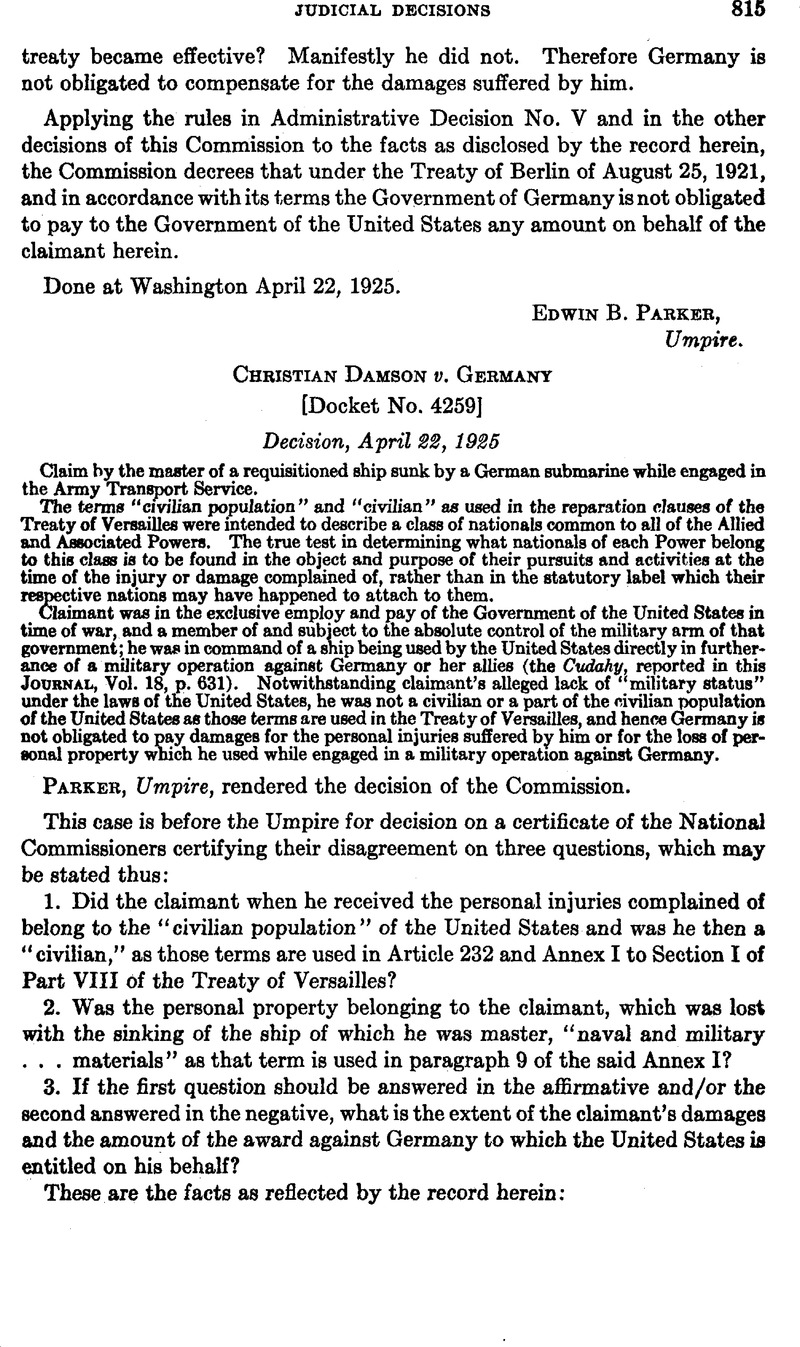No CrossRef data available.
Published online by Cambridge University Press: 04 May 2017

1 Paragraph 65 of Special Regulations No. 71 of the United States War Department governing the Army Transport Service, hereinafter cited as Army Transport Service Regulations.
2 Paragraph 1 of Army Transport Service Regulations.
3 Paragraph 6 of Army Transport Service Regulations.
4 Paragraph 20 of Army Transport Service Regulations.
5 Paragraph 40 of Army Transport Service Regulations and Exhibit No. 2 in this record. The oath taken by Regular Army officers is the oath prescribed by section 1757 of the Revised Statutes and is, under section 2 of the Act of May 13,1884 (23 Statutes at Large 22), to be taken by "any person elected or appointed to any office of honor or profit either in the civil, military, or naval service, except the President of the United States,” unless a special oath is prescribed by statute.
6 Paragraph 51 of Army Transport Service Regulations.
7 39 Statutes at Large 651.
Ex -parte Falls, 251 Federal Reporter 415 (May 24, 1918), wherein it was held that the chief cook on a ship operated by the Army Transport Service was a person “ serving with the armies of the United States in the field” and hence “subject to military law” and liable to trial by court-martial. In its opinion the court said: “Carrying supplies to equip and sustain the army is a very important military operation in time of war. ... It is unthinkable that Congress did not mean to include persons in the United States Army Transport Service, engaged in transporting our armies and sustaining them with equipment and supplies, in the class, in time of war, of those 'persons accompanying or serving with the armies of the United States in the field.'”
Ex parte Gerlach, 247 Federal Reporter 616 (December 10, 1917), wherein it was held that a mate in the Army Transport Service was serving with the armies of the United States in the field and subject to court-martial. There the court said: “The words 'in the field' do not refer to land only, but to any place, whether on land or water, apart from permanent cantonments or fortifications, where military operations are being conducted.”
See also Ex parte Jochen, 257 Federal Reporter 200 (April 8,1919), wherein the court said, at page 204: “That it is not necessary that a person be in uniform in order to be a part of the land forces, I think clear, not only upon considerations of common sense and common judgment, but upon well-considered and adjudicated authority.”
The Judge Advocate General of the Army of the United States distinguishes the class to which claimant belongs from the class “belonging to and serving in the Army” and who consequently have a military status (see manuscript letter J. A. G. 330.2, May 15, 1923).
8 See Decisions and Opinions, pages 97–98. [Printed in the JOURNAL, Vol. 18, pp. 631632.]
9 Decisions and Opinions, pages 75–101.Google Scholar [Printed in the Journal, Vol. 18, pp. 614–634.]Google Scholar